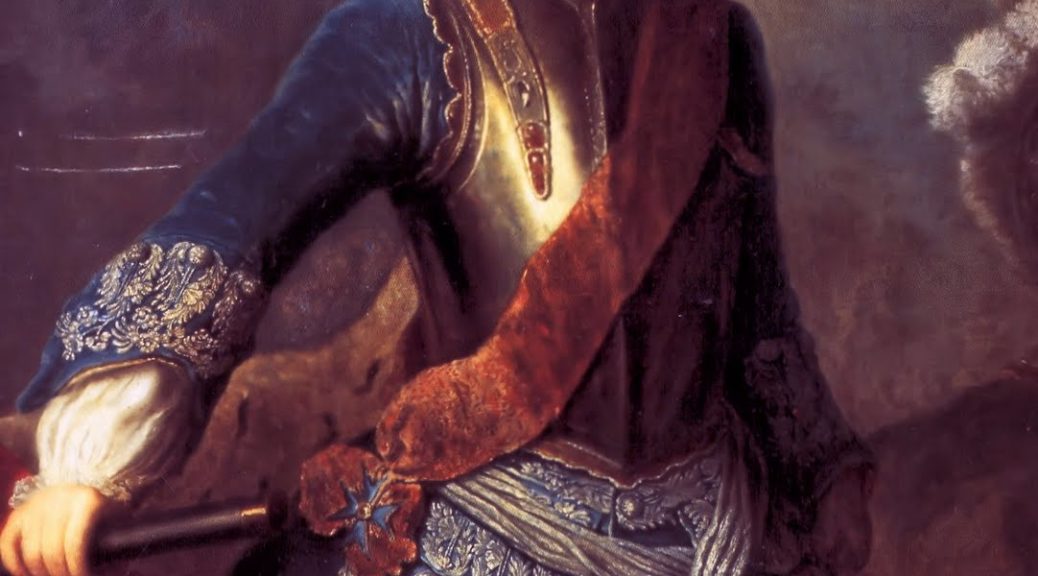The Prussian King FREDERICK II, was born. Interested primarily in the arts during his youth, Frederick unsuccessfully attempted to flee from his authoritarian father, the “Soldier-King” Frederick William I. Young Frederick persuaded his lover, Hans von Katte, to help him flee the prince’s ruthless father. They were captured and sentenced to death. The prince was ordered to be present at von Katte’s execution.
Frederick was a proponent of enlightened absolutism. For years he was a correspondent of Voltaire, with whom the king had a turbulent friendship. The works of Niccolò Machiavelli, such as “The Prince,” were considered a guideline for the behavior of a king in Frederick’s age. In 1749, Frederick finished his Anti-Machiavel — an idealistic writing in which he opposes Machiavelli. It was published anonymously in 1740, but Voltaire distributed it in Amsterdam to great popularity. Immanuel Kant published religious writings in Berlin which would have been censored elsewhere in Europe.
Frederick had famous buildings constructed in his capital, Berlin, most of which still exist today, such as the Berlin State Opera, the Royal Library, St. Hedwig’s Cathedral, the French and German Cathedrals on the Gendarmenmarkt, and Prince Henry’s Palace (now the site of Humboldt University). However, the king preferred spending his time in his summer residence Potsdam, where he built the palace of Sanssouci, the most important work of Northern German rococo. Sanssouci, which translates from French as “carefree” or “without worry”, was a refuge for Frederick.
Some historians have speculated that Frederick the Great was homosexual, bisexual or celibate, but what is known is that he showed no interest in his wife, and his relationship with Katte was widely speculated in the Prussian court to be romantic. Voltaire implied that Frederick was homosexual. Frederick is buried at his favorite residence, Sanssouci in Potsdam. He died childless.
